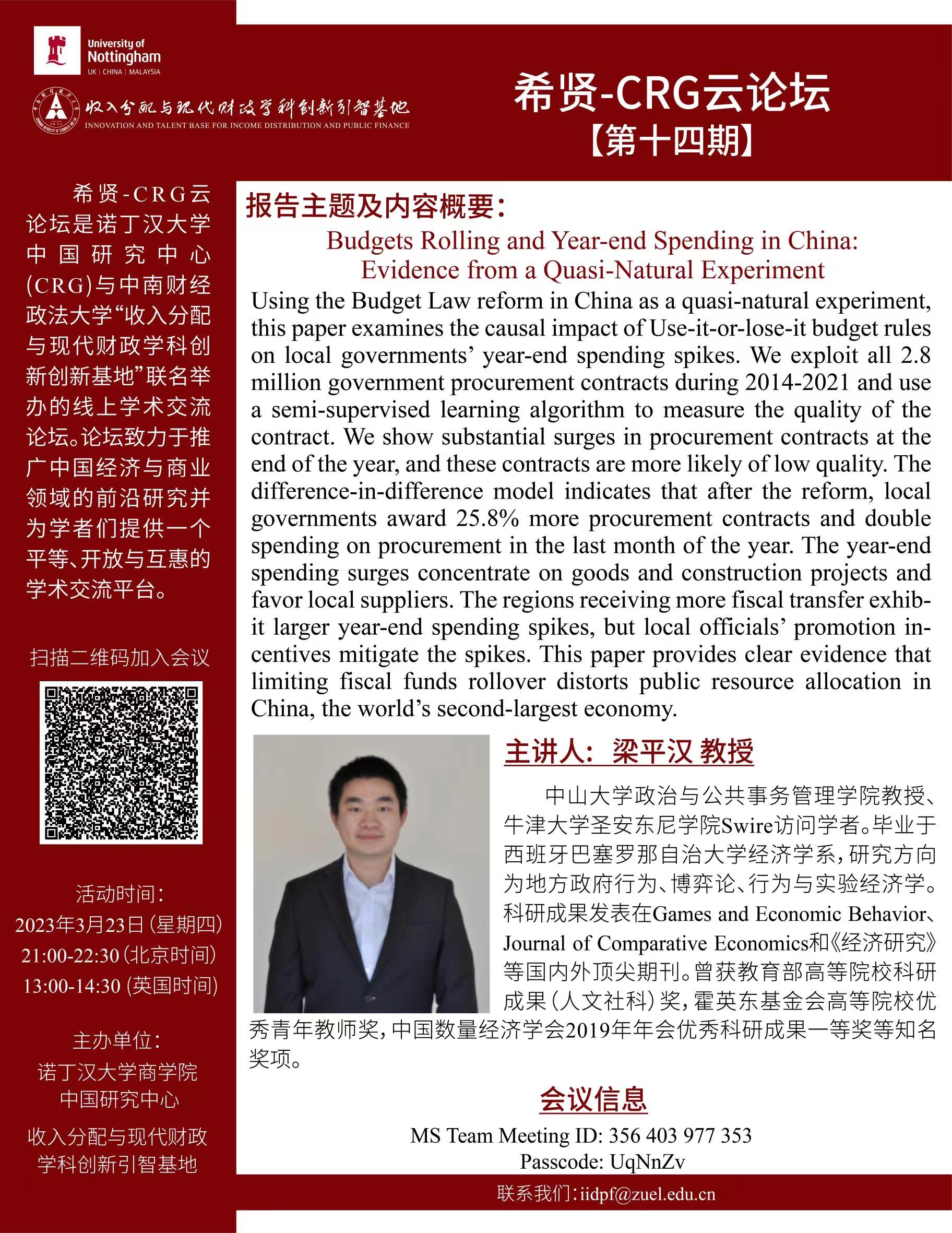
Topic: Budgets Rolling and Year-end Spending in China: Evidence from a Quasi-Natural Experiment
Abstract: Using the Budget Law reform in China as a quasi-natural experiment. this paperexamines the causal impact ofUse-it-or-lose-it budget rules on local governments'year-end spending spikes. We exploit all 2.8 million government procurement contracts during 2014-2021 and use a semi-supervised learning algorithm to measure the quality of the contract.We show substantial surges in procurement contracts at the endofthe year and these contracts are more likely oflow quality. The difference-in-difference model indicates that after the reform, local governments award 25.8% more procurement contracts and double spending on procurement in the last month of the year. The year-end spending surges concentrate on goods and construction projects and favorlocalsuppliers.The regions receiving more fiscal transfer exhib it larger year-end spending spikes, but local officials'promotion in- centives mitigate the spikes. This paper provides clear evidence that limiting fiscal funds rollover distorts public resource allocation in China, the world's second-largest economy
Keynote Speaker:Professor LIANG Pinghan
Professor Liang is a professor in the School of Politics and Public Affairs Management at Sun Yat-sen University and a Swire Visiting Fellow at St Antony's College, Oxford University. He graduated in Economics from the Autonomous University of Barcelona with research interests in local government behaviour, game theory, behavioural and experimental economics. His research has been published in leading journals including Games and Economic Behavior Journal of Comparative Economicsand Economic Research Journal. He has received prestigious awards including the Ministry of Education's Research Achievements in Higher Education (Humanities and Social Sciences) Award, the Fok Ying Tung Foundation's Outstanding Young Teachers Award in Higher Education, and the First Prize for Outstanding Research Achievements at the 2019 Annual Conference of the Chinese Association of Quantitative Economics.
Time:23 March 2023 (Thursday) 21:00-22:30 (BST) 13:00-14:30 (UK time)
